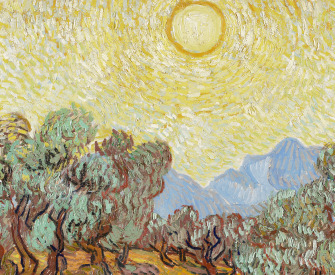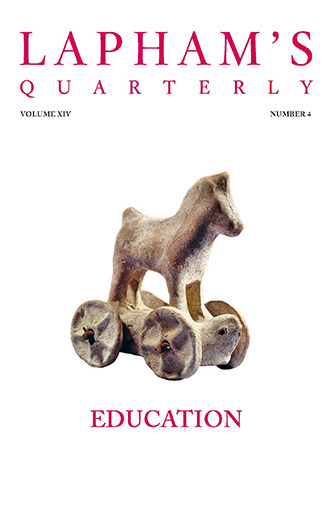The assuming of being is what you would call becoming?
I should.
And the relinquishing of being you would call destruction?
I should.
The one, then, as would appear, becomes and is destroyed by taking and giving up being.
Certainly.
And being one and many and in process of becoming and being destroyed, when it becomes one, it ceases to be many, and when many, it ceases to be one?
Certainly.
And as it becomes one and many, must it not inevitably experience separation and aggregation?
Inevitably.
And whenever it becomes like and unlike, it must be assimilated and dissimilated?
Yes.
And when it becomes greater or less or equal, it must grow or diminish or be equalized?
True.
And when being in motion, it rests, and when being at rest, it changes to motion, it can surely be in no time at all?
How can it?
But that a thing which is previously at rest should be afterward in motion, or previously in motion and afterward at rest, without experiencing change, is impossible.
Impossible.
And surely there cannot be a time in which a thing can be at once neither in motion nor at rest?
There cannot.
But neither can it change without changing.
True.
When, then, does it change? It cannot change either when at rest, or when in motion, or when in time?
It cannot.
And does this strange thing in which it is at the time of changing really exist?
What thing?
The moment. For the moment seems to imply a something out of which change takes place into either of two states. The change is not from the state of rest as such, nor from the state of motion as such, but there is this curious nature that we call the moment lying between rest and motion, not being in any time, and into this and out of this what is in motion changes into rest and what is at rest into motion.
So it appears.
And the one, then, since it is at rest and also in motion, will change to either; only in this way can it be in both. And in changing, it changes in a moment, and when it is changing, it will be in no time and will not then be either in motion or at rest.
It will not.
And it will be in the same case in relation to the other changes, when it passes from being into cessation of being or from not-being into becoming—then it passes between certain states of motion and rest and neither is nor is not, nor becomes, nor is destroyed.
Very true.
From Parmenides. Parmenides’ philosophy spread through his student Zeno, who in this text engages in a dialogue with a young Socrates and an elderly Parmenides. Socrates plays the role of student rather than acting as instructor. Parmenides challenges Plato’s theory of forms as articulated by Socrates; Plato then lays out eight deductions in defense of his theory. “Parmenides began philosophy proper,” Hegel wrote. “This beginning is certainly still dim and indefinite…but to take up this position certainly is to develop philosophy proper.
Back to Issue



